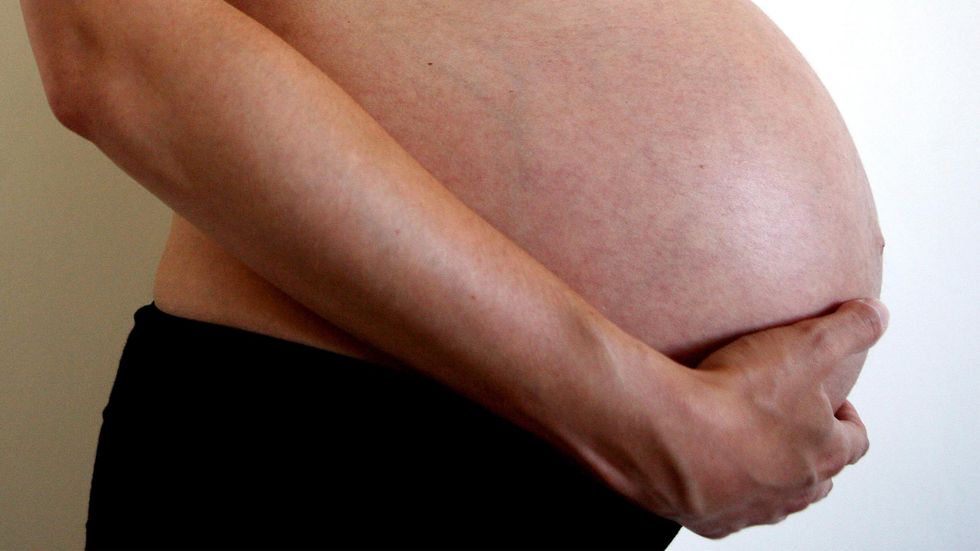Don't Miss
Most Read
Trending on GB News
A British university is teaching its midwifery students how to care for males giving birth.
Feminism news website Reduxx revealed teaching materials from Edinburgh Napier University which state the person giving birth may still have "external male genitalia" after transitioning.
The skills workbook on "catherization" informs students the person giving birth may be a male.
The workbook also adds a trans person who has transition from female to male could give birth through a specially constructed penis.
Pregnancy
Wikicommons
Elaine Miller a Fellow of the Chartered Society for Physiotherapy, expressed dismay at the contents of the workbook.
She told the website: "It is not possible for a male person to get pregnant.
“A female with a gender difference can become pregnant but will not have male genitalia."
An Edinburgh Napier University spokesman said it aims to be inclusive for people in the LGBTQ+ communities and will update teacher materials where required.
Concerned students sent pictures of the report to the website over concerns about its messaging.
This comes after a feminist PhD student lost her legal case against a university after claiming she suffered harassment and bullying from trans rights activists.
Raquel Rosario Sanchez, 32, sued the University of Bristol alleging it failed to protect her from the activists, who targeted her over her involvement with campaign group Woman’s Place UK.
She brought a claim against the university for damages in contract, negligence and the Equality Act over the way it handled her complaints about being targeted.
Ms Rosario Sanchez, whose academic background is in feminism, began her PhD course in autumn 2017, researching men who pay for sex.
She said both her mental health and her academic performance suffered as a result of online attacks that began in February 2018.
Activists had protested against a talk she gave and labelled her a “terf” – a trans-exclusionary radical feminist – and claimed she was “spreading hate about trans people”.











